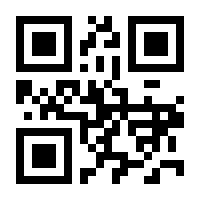In/Sanitary Science
Madness, Mental Hygiene, and Knowledge in Nine-teenth-Century Literature
von Maria KaspirekWhat does it mean to be mad? And who gets to decide that?
In nineteenth-century America, psychiatry emerges as a profession that successfully assumes the authority to diagnose individual and societal mental health. Yet psychiatry’s institutional success and the medical concept of insanity are inextricably linked to literature, as the material in this study reveals.
In their quest for knowledge, psychiatrists turned to Shakespeare, Molière and Byron, using these authors as infallible authorities, and their literary case studies as an etiological basis. At the same time, psychiatrists condemned literary works for their demoralizing and pathological influence. The package of what I call asylum literature adds more layers to this complex relationship: sensational novels process the institution and play with readers’ deep-seated fears and prejudices. Patients write their way to mental and actual freedom in patient-produced periodicals, and explosive accounts of everyday life and care in the asylum. Superintendents use bibliotherapy as a vital instrument in reshaping their patients’ minds.
The juxtaposition and comparison of medical literature, asylum literature and classic American works by Melville and Hawthorne reveal recurring questions that keep us busy still: What are the limits of science and literature? How is knowledge produced, negotiated, and consolidated?
In nineteenth-century America, psychiatry emerges as a profession that successfully assumes the authority to diagnose individual and societal mental health. Yet psychiatry’s institutional success and the medical concept of insanity are inextricably linked to literature, as the material in this study reveals.
In their quest for knowledge, psychiatrists turned to Shakespeare, Molière and Byron, using these authors as infallible authorities, and their literary case studies as an etiological basis. At the same time, psychiatrists condemned literary works for their demoralizing and pathological influence. The package of what I call asylum literature adds more layers to this complex relationship: sensational novels process the institution and play with readers’ deep-seated fears and prejudices. Patients write their way to mental and actual freedom in patient-produced periodicals, and explosive accounts of everyday life and care in the asylum. Superintendents use bibliotherapy as a vital instrument in reshaping their patients’ minds.
The juxtaposition and comparison of medical literature, asylum literature and classic American works by Melville and Hawthorne reveal recurring questions that keep us busy still: What are the limits of science and literature? How is knowledge produced, negotiated, and consolidated?






